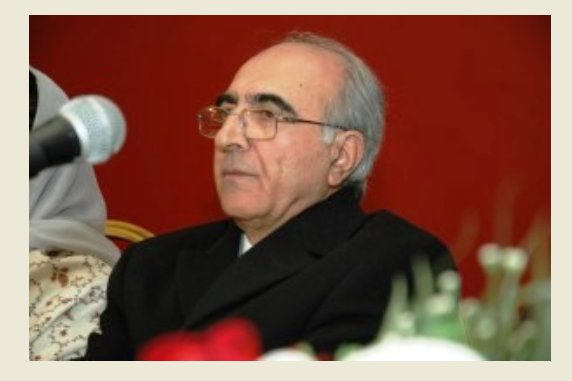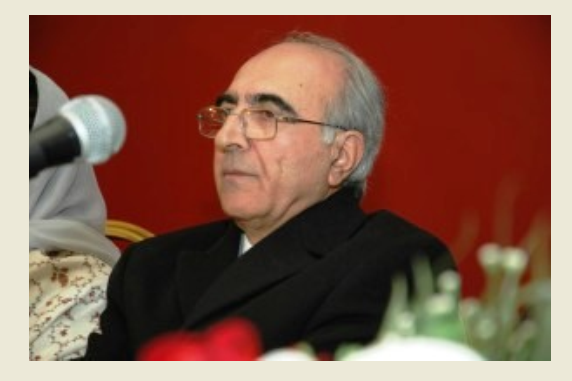
Third Part
“Clash of Civilizations” Through a “Geopolitical Prism”
We need the United Nations to relocate form New York City to Jerusalem-a unique city in the world where “temporal, spiritual, political, cultural, and territorial converge.” (Esposito and Khan, op. cit.). But the Security Council on the top on the UN body shall be geographically balanced, broadly representative, civilization-wise inclusive and decision-wise effective. The Security Council reflects the global power structure of 1945, when the UN was created and most of to today’s nations were under colonial rule. Twenty years later in 1965, under pressure from a growing UN membership, a cosmetic change was accepted. The Security Council membership expanded from six to ten non-permanent members. Despite this change, still the biggest obstacle in the process of the Security Council is the veto-power. Another structural problem in the Security Council is that the five veto-holding powers also happen to be involved in the main arms business. Yet, one of America’s most eminent political scientists Professor Samuel P. Huntington’s “The Clash of Civilizations and the Remaking of World Order (New York: Simon & Schuster, 1996) has attracted not only the attention of the world’s intellectual community, but also his “thesis was dominating the U.S. political scene” after the terrible 911 attacks (September 11, 2001) as Tim Hames, a Republican politician “very close” to the George W. Bush administration, claimed(Nafeez Mosssadeq Ahmed, Behind the War on Terror: Western Secret Strategy for Iraq, BC, Canada: New Society Pub., 2003, pp.1-2). The celebrated Palestinian-American critic Professor Edward W. Said called “The Clash of Civilizations” thesis “a gimmick like ‘The War of the Lords’ [which is a fictional account of how a group of aliens planned to attack earth and destroy humanity],” in “The Clash of Ignorance”, electronic version, 5 pages, [December 6, 2007]. We cannot get away from the fact that without an “enemy” there will be a vacuum in news coverage as in politics. The alliance of Christian-Western and Islamic-Eastern civilizations defeated the Soviet aggression against Afghanistan (1979-1989). Both allied civilizations enjoyed their victory over the “Godless Communism” of the Cold War. Listen to Huntington: “To Americans and Westerners generally Afghanistan was the final, decisive victory, the Waterloo, of the Cold War….What the West sees as a victory for the Free World, Muslims see as a victory for Islam[emphasis added]” (pp.246-247). Thus, a dangerous adversary was identified, and so a vacuum no more existed. The three professors (Lewis, Fukuyama and Huntington) are more or less clamoring for a religious-civilizational war, a global equivalent of the Thirty Years’ War from 1618 to 1648 in Europe. Professor Zbigniew Brzezinski is armed with a deep knowledge of international relations and is a major U.S. strategic thinker. He was national security adviser under President Jimmy Carter (1977-1981) and is a proponent of Realpolitik. Professor Brzezinski does not subscribe to a straightforward Islam-versus-West clash. He views “the ferment within the Muslim world…through a geopolitical rather than a theological prism [emphasis added]….Hostility toward the United States, while pervasive in some Muslim countries,” Brzezinski continues, “originates more from specific political grievances-such as Iranian nationalist resentment over the US backing of the Shah, Arab animus stimulated by US support for Israel, or Pakistani feelings that the United States has been partial to India-than from a generalized religious bias.” (The Choice: Global Domination or Global Leadership. New York: Basis Books, 2004, p. 59). A prominent Japanese scholar Seizaburo Sato ( Political Science Professor at Tokyo University and the research director of the Institute for International Policy Studies) points to the fact that “the great existing religions” (Buddhism, Hinduism, Confucianism, Christianity, Islam[and Judaism]) emerged in parts of Eurasian continent. He criticizes Huntington for ignoring the possibility that different civilizations through contact with each other may learn from each other, “and may thereby revitalize themselves.” For example, Professor Sato notes: “In the West, the Renaissance, which was the initial spark for the development of modern Western civilization, would not have occurred had it not been for the West’s contact with the Islamic civilization.” Also, “if the birthplace of concepts or ideas is the issue,” Professor Sato argues that neither Christianity “was born in the West, nor was Classical Greek civilization of Western origin.” (“The Clash of Civilizations: A View from Japan”, October 1997, electronic version, 12 pages).
Power Sharing in the United Nations for Civilization Harmony
For a workable diplomacy and civilization harmony all nations on the
Security Council shall be counted. The Security Council on the nearly universal organization, UN with 192 member states in 2006, shall be run by the force of law, not the law of force. We need a Security Council that is more representative, more legitimate, more effective, more accountable, and more inclusive with regard to civilizations. I realize that the emergence of such an integrative and more democratic model UN is impossible in the very near term. Its gradual phase-out would ultimately pave the way, for example, for a ¾ majority vote of the UN member states in all substantive matters. To enhance harmony among civilizations and to give peace-making and peace-preserving a genuine chance, the Security Council shall undergo a real change. At present only two civilizations have five permanent/veto-holding seats on the Security Council: One of them belongs to Sinic-Chinese civilization while the other four seats are allocated to Christian-Western civilization (France, United Kingdom, the USA, and Orthodox Russia). Also, I shall point to the inconvenient truth that until this day the nearly universal UN has not had a Muslim as its Secretary General, who could have eased the transition to a more productive environment for the dialogue of civilizations. Later after Germany had been added as a permanent member, France, Germany, and United Kingdom could be consolidated into two European Union seats, which could be occupied on a rotating basis as determined by the European Union. In addition to the current permanent members, the Organization of the Islamic Conference, the Organization of African Unity, the Organization of American States (the USA abstaining) should each have a permanent seat on the Security Council (Huntington, The Clash of Civilizations, 1997, pp. 317-318). Also, India, Japan, Brazil, and South Africa should be consolidated into a single permanent seat on the Security Council, which could be occupied on a rotating basis. It would be appropriate to increase the number of non-permanent members from 10 to 12. This way, the Security Council would be composed of nine permanent members and 12 non-permanent members. Each council member shall have one vote. Decision on procedural matters shall be made by an affirmative vote of at least 14 of the 21 members. Decision on substantive matters shall require 14 votes including the concurring votes of at least seven permanent members (Any decision in substantive matters can be blocked by a majority vote of the current five veto-holding powers). Such an allocation would correspond with the distribution of people, wealth, and power in a global village to be run by harmony grounded in tolerance, pluralism, and justice. At the end of a certain period, for example, in 2020, the term of all newly elected/non-permanent members as well as of all newly selected permanent members shall expire, and, hereafter, the Security Council shall be enlarged with only elected permanent member. At this stage the UN headquarters shall be relocated from New York City to Jerusalem (al-Quds). However, now it would be appropriate to relocate the UNESCO headquarters to Jerusalem (As currently administered, rising number of people in the world view the UN as nothing more than a tool of U.S. foreign policy).
UNESCO Run International Peace Academy: “Thou Shalt Not Kill”
The need is urgent to have an academy in al-Quds (Jerusalem), an institution of knowledge production and religious intellectuals, an international institution that fosters intellectual diversity in a religio-pluralistic campus. The International Peace Academy is expected to develop competency in ethical and moral reasoning, and to foster personal initiative, individual responsibility, and social motivation to contribute to the larger, globally peaceful community. We need well-meaning, global-minded, and at least relatively independent intellectuals (global elite) concerned with an effective and balanced order in the interdependent world as a whole. International Peace Academy will have the capacity to develop an ethically more reliable and intellectually more independent global elite, not “power elite.” A balancing global movement could elevate resistance as an obligation to the status of the “other superpower” (New York Times referring to the anti-globalization protest of estimated 15 million people in some 60 countries worldwide on February 15, 2003), the system of checks and balances. The International Peace Academy shall be run by the UNESCO and it shall have, for example, a governing council composed of the following members:
Optimistically, perhaps naively, I hope that this step of relocating UNESCO headquarters to Jerusalem could contribute to a more creative solution to the very serious conflict over Haram Sharif (the Temple Mount) as well as to the much needed harmony of civilizations. Prophet Abraham happens to be the father of Ishmael (ancestor of all Arabs); the father of Isaac (tribal ancestor of all the Jews), and was the ancestor of Mary, mother of Jesus. Most importantly, on Mount Sinai God gave Moses about 3200 years ago ( in circa 1200 B.C.) the Ten Commandments, the basis of the Torah or the law. One of the Ten Commandments was: “Thou shalt not kill.” The Prophets Moses, Jesus and Mohammad believed that life has a profound value and meaning. They taught people in egalitarian ideals and harmony. They led people from darkness and oppression to dignity and freedom, as well as from disorder and disorientation to self-determination, responsibility and tolerance. “In reality Jews, Christians and Muslims worship the same God, albeit in different ways and differing emphasis….Koran makes numerous and favourable references to Jesus [and Moses]…. How many Canadians, I wonder, know that about 50,000 Spanish Jews were welcomed by the Muslim Ottoman Empire when they were expelled from Spain after 1492?”(Talk by Canadian cabinet minister and Member of Parliament for 26 years David Kilgour at a meeting at the Kanata Baptist Church in Kanata, Ontario, Canada, November 16, 2001). There must exist brotherly feeling among the followers of all prophets of God. A Muslim cannot be a Muslim unless and until he/she respects the memory of all the prophets, the great leaders of religious thought (See Koran 2:136; 2: 285; 2:62; and 42:13).
The International Peace Academy of Jerusalem, coupled with power sharing instead of domination, could defuse the “Clash of Civilizations” of the three religions (Judaism, Christianity and Islam) under One God. The promotion of an authentic pedagogy of peace is of “universal importance” because the three religions have followers throughout the world. Today, around 3.4 billion people are followers of the three Abrahamic religions who make up slightly more than a half (53.5%) of the world population: Christianity 33% (2.1 billion), main regions covered are worldwide except Northwest Africa, the Arabian Peninsula, and parts of Central, East, and Southeast Asia and China; Islam 20% (1.5 billion), main regions covered are Middle East, Northern Africa, Central Asia, South Asia, Western Africa, Eastern Africa, Indian subcontinent, Russia, China, Balkan Peninsula, and Malay Archipelago; and Judaism 0.23% (14 million), main regions covered are Israel, USA, and Europe with the USA having the largest Jewish population(“Major religious groups”, Wikipedia, 25/11/2007). We must work harder to build bridges.
Dismantle the Fantasy about Each Other
The 21st century must learn from the utterly brutal consequences of the fantasy about the Jew which culminated in the “secular crusade”, namely fascism (Karen Armstrong, op. cit., p. 524). We must dismantle the fantasy about each other by eliminating the knowledge deficit regarding each other. For this urgent need I could not but to admire the breath, imagination, wisdom, and fervent plea for religious tolerance evident in the late 18th century play, Nathan the Wise, which might have something to teach us in our troubled times today-the 21st century that parades the ugliness of racial hatred, religious intolerance, military violence, economic siege, and unequal political representation. Nathan the Wise (original German title Nathan der Weise, published in 1779) is the last masterpiece by Gotthold Ephraim Lessing, a freethinker who became the father of German criticism, and the founder of modern German literature. Set in Jerusalem during the Third Crusade in the 12th century A.D., this didactic drama depicts how the wise Jewish merchant Nathan, the enlightened Muslim ruler, Saladin, and the Christian Templar are building bridges between the three sister faiths (Judaism, Christianity and Islam). The work’s theme is organized around the concept of peaceful coexistence among Jews, Christians and Muslims, all of whom deserve a lifestyle free of attacks and denigration. The centerpiece of the drama is the parable of the three rings. A stronger lesson unfolds in the play when the Muslim ruler, Saladin, summons Nathan for help and confronts him with the question, which in his opinion was the right religion. Nathan proved his wisdom by telling Saladin a parable comparing God and the three main monotheistic religions to a King with three equally beloved sons: Many years ago, an Eastern patriarch owned a very precious ring with mystic powers. It could make the bearer, who trusted its powers, become beloved by God and mankind. The original owner commanded that the mystic ring would be passed from father to the son he loved most. By then, in one generation, the father had three sons, whom he loved equally. He promised it to each of them. So he had two replicas made, “in all points identical”, and gave on his deathbed a ring to each of them, claiming that it was the mystic ring. The three brothers quarreled over who owned the real ring. A wise judge admonished them that each of them should put trust in his own ring to be the true and genuine one, because all of them had equal position in the heart of their father. He did not want to elevate one of them by lowering down two of them. Lessing’s main idea of religious tolerance in his didactic drama, Nathan the Wise, is important to the brotherhood of mankind.



